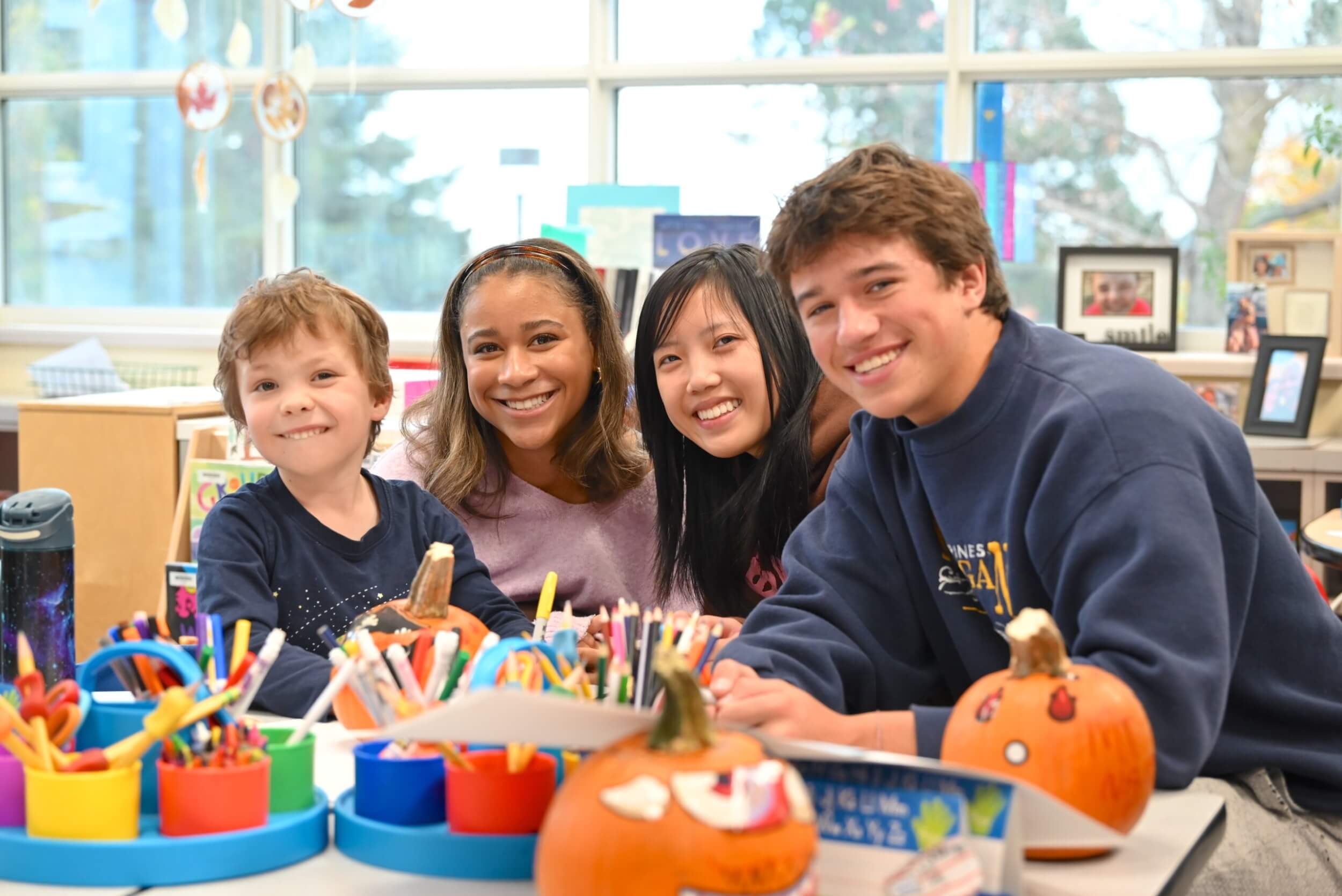One thing I love about Colorado Academy’s mission statement is that we aspire to be a kind community. We are living in a time in which it can be hard to see kindness in the world. Brutal fighting is still taking place in Ukraine. Civil war rages in east Africa. Haiti is in crisis and chaos. The Palestinian and Israeli conflict is still not fully resolved. At home, new immigration policies have caused many immigrants, both legal and undocumented, to feel afraid—something many in our school community have communicated to me. LGBTQ communities are also fearing what policies might be implemented. Many Americans from diverse backgrounds are demoralized that their achievements may be seen by some as “less than” because of their identity and that they are sometimes scapegoated for larger societal problems. Our students are aware of the devastating impact of the wildfires in Los Angeles, which have led to thousands being homeless and losing all of their possessions.
Some might look at the state of the world and throw up their hands. Indeed, parents, faculty, and students whom I have spoken to from both sides of the political aisle are just sick of the chaos and have told me, both before and after the election, that they can’t watch the news anymore. And we can see and sense the anxiety in some of our students.
I actually think this is the wrong time to be apathetic about anything. I only write about political or world events that have some impact on our community. And right now, I see many members of the CA community struggling with what is happening in the world. The school’s role is to help educate and not indoctrinate, and I want to be clear that my opening paragraph was merely reflecting some of the things that are going on in the world.
I would encourage families to spend time talking about world events and trying to look at issues from all sides. A key CA value is promoting critical thinking. That can only be done when students take on a complex matter and look at evidence, and then carefully form their own conclusions. But it does mean not ignoring inconvenient evidence. I also remain convinced that Americans have more in common than our differences, and both parties, as well as cable news shows, have been far too effective in dividing Americans. Political parties and the media are selling “fear” right now. We need to model confidence for our kids and not play into various tropes.
Kindness is something that takes work. Babies give us a sense of the potential for humans to be kind. If you are a parent, just think about when you first held your child and the immense joy you felt and the love your child projected. But my study of history makes me wonder whether humans are not naturally hard-wired to be kind. It doesn’t take much to push a human being to be greedy, angry, or even violent. It’s part of our evolutionary journey. Yet kindness also has evolutionary advantages. Kindness can allow us to form alliances to gain access to more resources. Acts of kindness can lead to important social relationships, including finding a partner to love and a friend to depend on.
Some high-achieving schools can be places of stress and tension, where students are competitive, and teachers use harsher motivational techniques to get results. However, one thing we know at CA is that a supportive school culture that is kind is far more effective in promoting high performance.
The same thing goes for our students. They are well aware from social media and from learning about world events that there is a lot of conflict out there. They cannot perform and learn essential skills while living in fear. Nearly every student at CA, and certainly every adult, lived through the anxious years of the pandemic. We know that this has had an impact on the well-being of young people throughout the nation.
The winter is already a pretty tough time for school morale. The long, dark days of winter and cold weather take a toll on students, faculty, and staff alike. So, let’s continue to look out for one another, support one another, and, most importantly, talk to one another and try to understand this complex world. It’s going to be up to this generation of students to take on the many problems the world faces.
As a community we have to remember to see the good and be the good. There are countless smaller, quieter acts of compassion happening every day around the world that might go unnoticed by the general population. Here are a few examples that highlight the hidden or understated ways kindness is making a difference:
- Teachers providing free resources to students
- Neighbors supporting one another in crisis
- Hospital volunteers and caregivers
- Volunteers working behind the scenes in mental health
- Local acts of compassion for the elderly
- Crowdfunding for medical bills
- Anonymous donors supporting struggling families
- First responders providing emotional support in crisis
I was recently at a gathering of alumni in New York City, and I left the event feeling so positive about what the future might hold. There were a number of alumni there in their 20s and 30s, to whom I had the privilege of presenting their diplomas years ago. They are working in startups, technology, the entertainment industry, public service, financial firms, etc. They are working hard and want to give back because they embody kindness. The joy of seeing them all reminded me of how critical our mission is at this moment. In challenging times, kindness becomes more than just a gesture; it becomes a lifeline. When the world feels uncertain or overwhelming, a simple act of compassion can provide comfort and strength. Kindness is a reminder that we are not alone in our struggles—we are all in this together.
